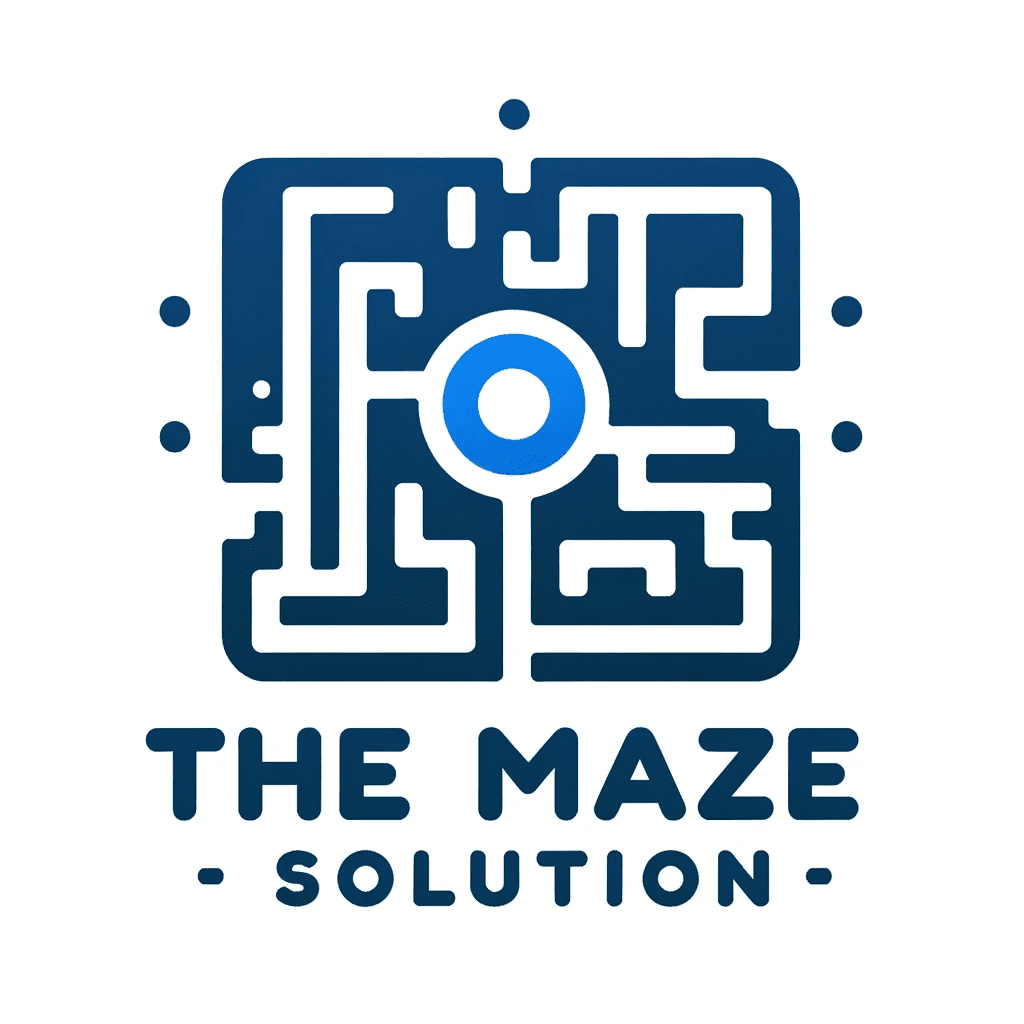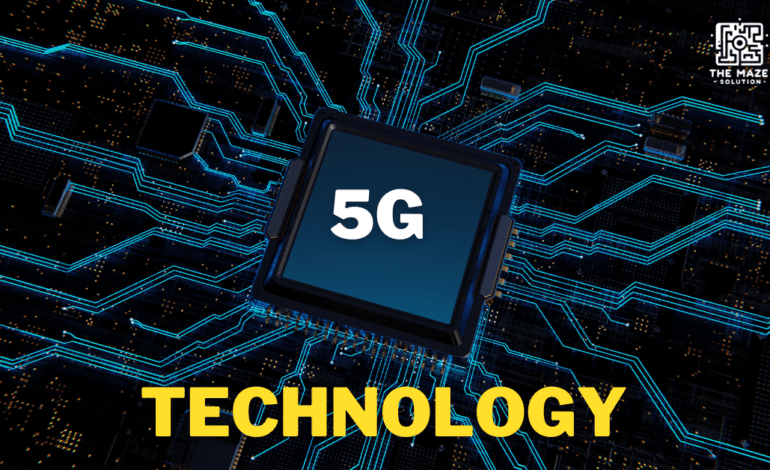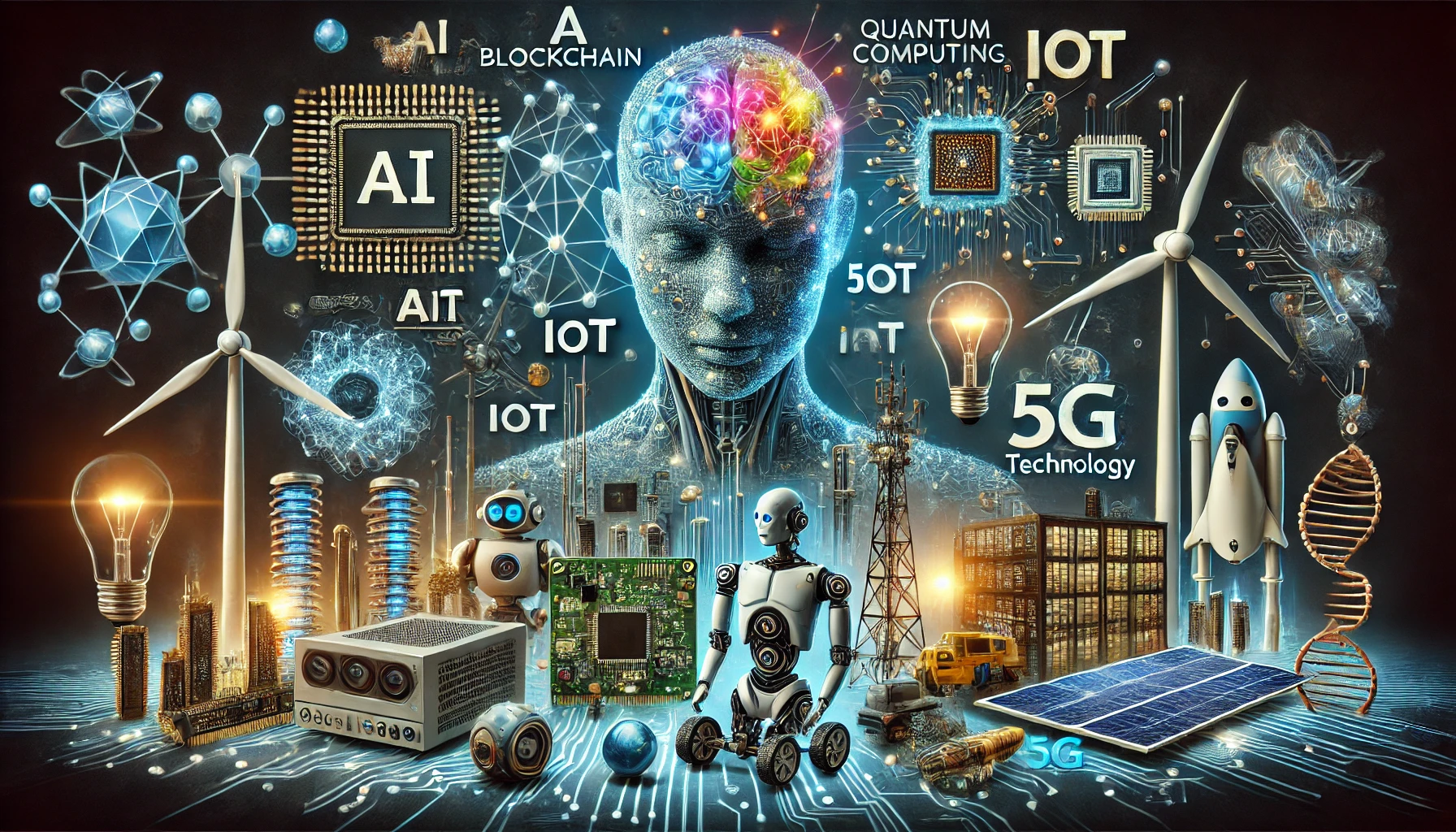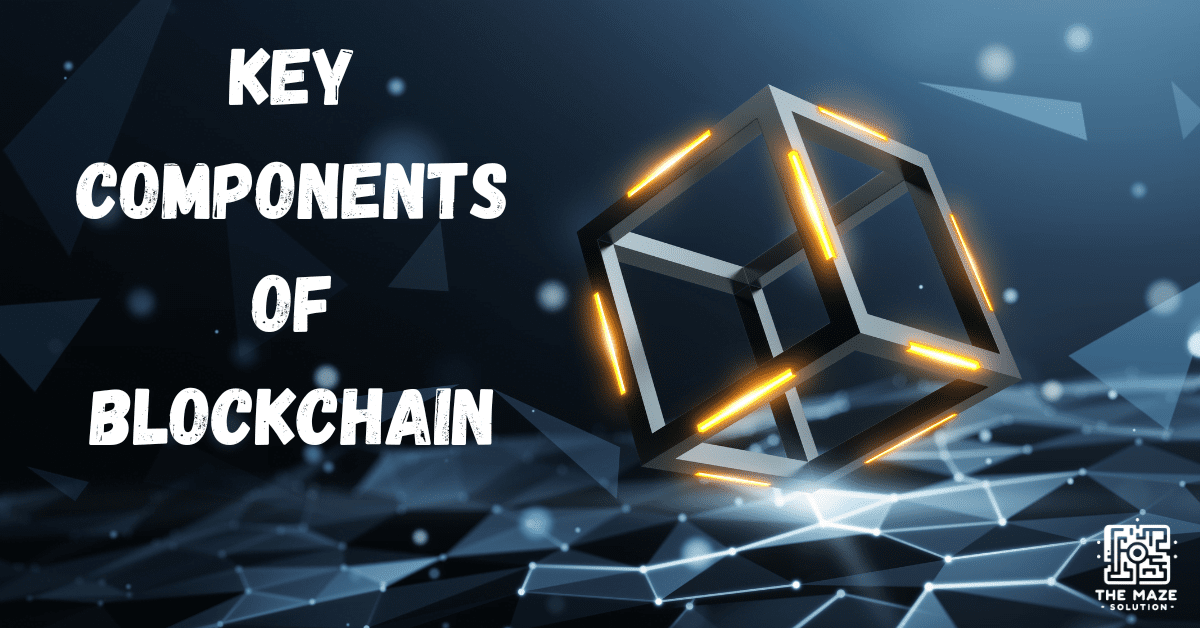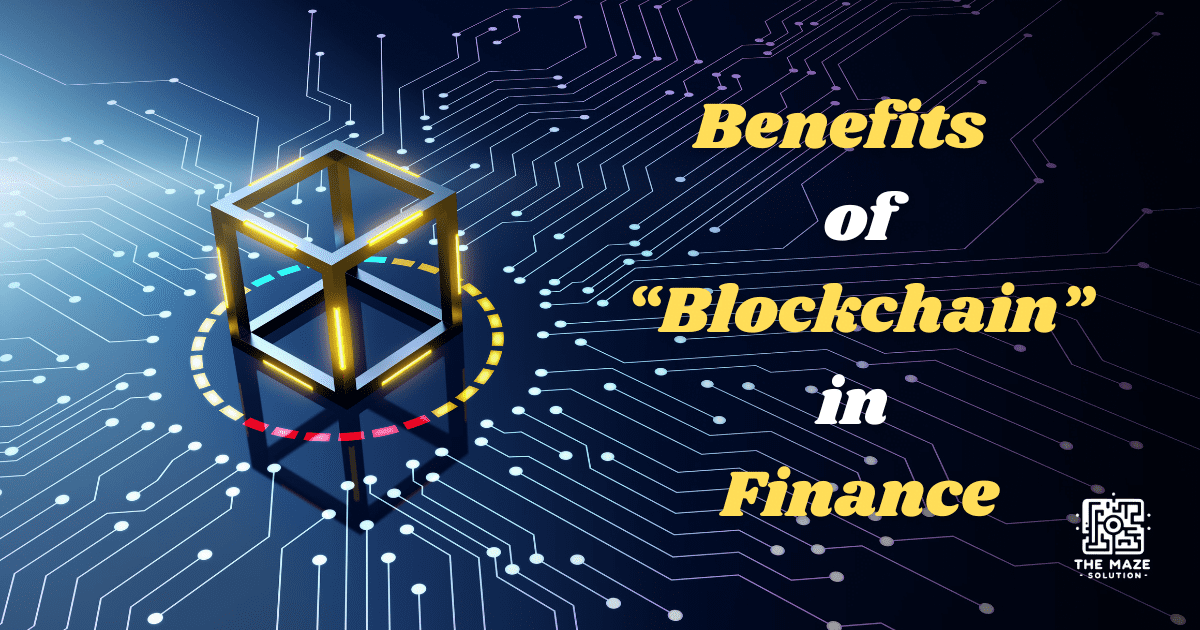Exploring the Benefits of Gaming Blockchain: A New Era for Gamers
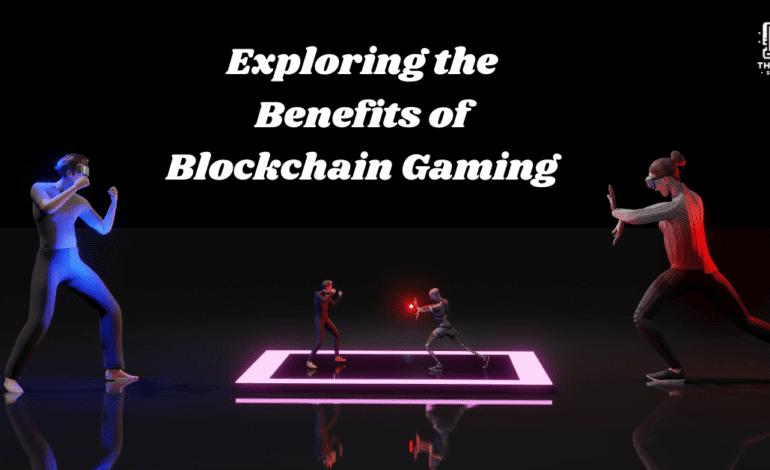
Blockchain technology has revolutionized numerous industries, and gaming is no exception. The advent of blockchain gaming has opened up a new world for gamers, offering unprecedented benefits and opportunities. In this blog, we’ll explore the benefits of blockchain gaming, delve into what crypto gaming is, and discuss the future of high-speed blockchain technology in the gaming industry. We will also guide you on how to play crypto games in 2024 and provide insights into gaming blockchains.
The Benefits of Gaming blockchains
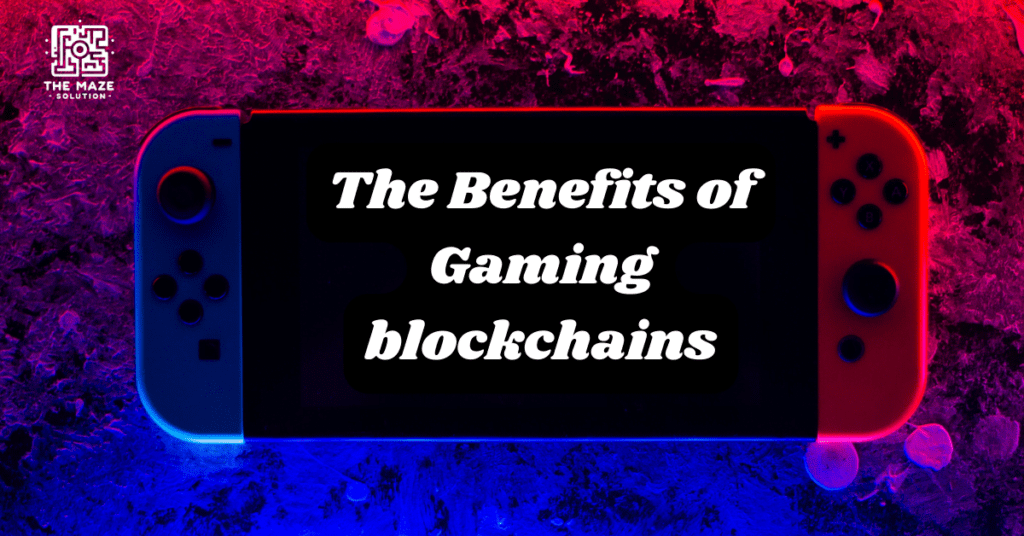
Gaming blockchains brings numerous benefits to both players and developers. Here are some key advantages:
- Transparency and Security
- Blockchain technology ensures that all transactions are transparent and secure. Each transaction is recorded on a public ledger, making it nearly impossible to alter or hack.
- True Ownership of In-Game Assets
- Players have true ownership of their in-game assets. These assets, often represented as NFTs (Non-Fungible Tokens), can be traded, sold, or transferred outside the game.
- Decentralization
- Gaming blockchains operate on decentralized networks, reducing the risk of a single point of failure. This enhances the reliability and longevity of games.
- Play-to-Earn Opportunities
- Blockchain gaming introduces the play-to-earn model, allowing players to earn real-world value through in-game activities. This can be in the form of cryptocurrencies or valuable NFTs.
Understanding Gaming Blockchains
Gaming blockchains are specialized blockchain networks tailored to support and enhance gaming applications. These Gaming blockchains provide the necessary infrastructure to handle the unique demands of Gaming blockchains , such as high transaction volumes, low latency, and the need for secure and verifiable ownership of in-game assets. Here, we’ll delve into some of the most popular gaming blockchains and their specific features.
Ethereum
Ethereum is one of the most widely used blockchains for decentralized applications (dApps) and is renowned for its smart contract capabilities. These smart contracts are self-executing contracts with the terms directly written into code, allowing for automated and trustless transactions. Here’s why Ethereum is popular in the gaming industry:
- Smart Contracts: Ethereum’s smart contracts enable complex in-game mechanics, such as trading, asset ownership, and reward distribution, to be executed automatically without intermediaries.
- Wide Adoption: As the first blockchain to introduce smart contracts, Ethereum has a vast developer community and a rich ecosystem of tools and libraries, making it easier for game developers to build on the platform.
- Decentralized Finance (DeFi) Integration: Ethereum’s integration with DeFi platforms allows for innovative financial interactions within games, such as staking, lending, and earning interest on in-game assets.
However, Ethereum has faced challenges with high transaction fees (gas fees) and network congestion, which can impact the gaming experience.
Binance Smart Chain (BSC)
Binance Smart Chain (BSC) is an alternative blockchain that addresses some of Ethereum’s limitations by offering lower fees and faster transaction times. BSC is built to be compatible with Ethereum, meaning it can run Ethereum-based applications with little modification. Key features include:
- Lower Transaction Fees: BSC transactions are significantly cheaper than Ethereum’s, making it more cost-effective for players and developers to interact with games.
- High Throughput: BSC can handle a higher number of transactions per second (TPS) compared to Ethereum, reducing latency and improving the gaming experience.
- Cross-Chain Compatibility: BSC’s compatibility with Ethereum allows developers to port their applications easily, leveraging the benefits of both blockchains.
BSC has become a popular choice for game developers looking to mitigate the high costs and scalability issues associated with Ethereum.
Polygon (MATIC)
Polygon (formerly known as Matic Network) is a layer-2 scaling solution for Ethereum, designed to provide faster and cheaper transactions. It achieves this by using sidechains and other scaling technologies. Here’s how Polygon enhances gaming:
- Scalability: Polygon’s layer-2 solutions allow for high-speed transactions, significantly reducing the time and cost associated with Ethereum’s main chain.
- Interoperability: Polygon supports cross-chain communication, enabling assets and data to be transferred seamlessly between Polygon and Ethereum, as well as other blockchains.
- Developer-Friendly: With robust tooling and support for Ethereum-compatible smart contracts, Polygon makes it easy for developers to build and deploy scalable games.
Polygon’s ability to enhance Ethereum’s capabilities without sacrificing security or decentralization makes it a popular choice for blockchain games.
Flow
Flow is a blockchain specifically designed for high-performance games and digital collectibles. Developed by Dapper Labs, the creators of CryptoKitties, Flow addresses many of the limitations seen in other blockchains. Key features include:
- Optimized for Games: Flow is built with gaming and digital collectibles in mind, offering the speed and throughput necessary for seamless user experiences.
- Cadence Programming Language: Flow introduces Cadence, a resource-oriented programming language designed to make smart contract development safer and more intuitive.
- Multi-Node Architecture: Flow’s architecture separates different tasks (such as consensus and execution) across different nodes, enhancing scalability and reducing the likelihood of network congestion.
- Ecosystem Support: Flow has gained significant traction with high-profile projects and partnerships, including NBA Top Shot, a popular digital collectible platform.
Flow’s focus on providing a high-performance environment for games and collectibles positions it as a strong contender in the gaming blockchain space.
What is Crypto Gaming?
Crypto gaming refers to games that incorporate blockchain technology and cryptocurrencies. These games use blockchain for various in-game mechanics, such as transactions, ownership verification, and game economy management. Players can earn and use cryptocurrencies within these games, creating a vibrant and real-world connected gaming ecosystem.
The Future of High-Speed Blockchain in Gaming
The future of high-speed blockchain technology holds great promise for the gaming industry. As blockchain networks continue to evolve, we can expect:
- Improved Scalability: Enhanced scalability will allow more complex and large-scale games to operate smoothly on blockchain networks.
- Lower Transaction Fees: Innovations in blockchain technology will lead to lower transaction fees, making it more affordable for players to trade in-game assets.
- Faster Transaction Times: High-speed blockchain solutions will enable near-instantaneous transactions, improving the overall gaming experience.
What are Crypto Games?
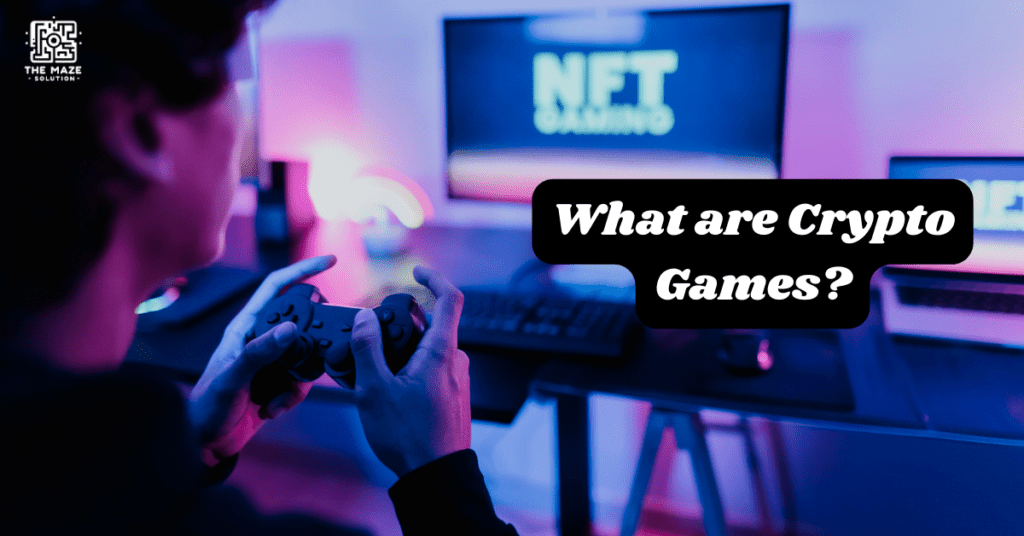
Crypto games are a revolutionary development in the gaming industry, combining the immersive experience of video games with the innovative potential of blockchain technology and cryptocurrencies. These games offer players the unique ability to earn, spend, and trade digital assets, providing a new dimension to traditional gaming. Here’s a more detailed look at some popular crypto games:
Axie Infinity
Axie Infinity is one of the most well-known crypto games, embodying the play-to-earn model. Developed by Sky Mavis, Axie Infinity allows players to breed, battle, and trade creatures called Axies. Here are some key features:
- Axies: These are digital pets, each represented by a unique Non-Fungible Token (NFT). They can be bred to create new Axies with different traits, which can then be used in battles or sold in the marketplace.
- Battles: Players can engage in turn-based battles with their Axies against other players or computer-controlled opponents. Winning battles earns rewards in the form of Smooth Love Potion (SLP), a cryptocurrency that can be used for breeding new Axies.
- Marketplace: The Axie Infinity marketplace allows players to buy, sell, and trade Axies and other in-game items. Transactions are conducted using Ethereum (ETH) or Axie Infinity Shards (AXS), another native cryptocurrency of the game.
- Land: Players can also own virtual land in the game, which can be developed, rented out, or used to produce resources.
CryptoKitties
CryptoKitties is a pioneering crypto game developed by Dapper Labs that gained immense popularity for its simple yet addictive gameplay. Here’s what makes CryptoKitties unique:
- Kitties: The primary feature of the game is the ability to buy, sell, and breed virtual cats. Each kitty is a unique NFT with distinct attributes and traits, determined by its digital genome.
- Breeding: Players can breed two kitties to create a new kitty, which inherits traits from its parents. Some traits are rarer and more valuable, creating a robust breeding market.
- Marketplace: The CryptoKitties marketplace allows players to buy and sell kitties using Ethereum. The value of a kitty depends on its rarity and the uniqueness of its traits.
- Collections: Players can collect kitties to complete specific collections, which can be traded or sold as a set.
Decentraland
Decentraland is a decentralized virtual reality platform powered by the Ethereum blockchain. It offers a rich, interactive experience where players can create, explore, and trade in a vast virtual world. Key aspects include:
- LAND: The virtual world of Decentraland is divided into parcels of land, represented as NFTs. Players can purchase these parcels using the native cryptocurrency MANA and develop them by building structures, games, or interactive experiences.
- Customization: Players can customize their avatars, interact with other users, and participate in various activities such as virtual events, games, and social gatherings.
- Marketplace: The Decentraland marketplace allows users to trade virtual land, wearables, and other digital assets. Transactions are conducted using MANA.
- Content Creation: Decentraland provides tools for users to create their own content and experiences, such as virtual art galleries, casinos, and educational spaces.
Benefits of Crypto Games
- Ownership and Control: Players have full ownership of their in-game assets, which are stored securely on the blockchain. This means that assets can be transferred or sold outside the game environment.
- Monetization: Players can monetize their gaming skills and time investment through play-to-earn models, trading rare items, or developing valuable virtual properties.
- Interoperability: Assets in crypto games can often be used across multiple games or platforms, providing a more interconnected gaming experience.
- Security and Transparency: Blockchain technology ensures that all transactions are secure, transparent, and immutable, reducing the risk of fraud and enhancing trust in the gaming ecosystem.
How to Play Crypto Games in 2024
Playing crypto games in 2024 is expected to be more accessible and rewarding than ever before. Here’s a step-by-step guide on how to get started:
- Set Up a Crypto Wallet
- To participate in crypto gaming, you’ll need a digital wallet that supports cryptocurrencies. Popular choices include MetaMask, Trust Wallet, and Coinbase Wallet.
- Purchase Cryptocurrency
- Buy some cryptocurrency, such as Ethereum (ETH) or Binance Coin (BNB), which you’ll use to play and transact within the games.
- Choose a Game
- Select a crypto game that interests you. Explore popular titles on gaming blockchains and choose one that fits your preferences.
- Connect Your Wallet to the Game
- Most crypto games will require you to connect your digital wallet to their platform. This allows you to manage your in-game assets and perform transactions.
- Start Playing and Earning
- Dive into the game and start playing. Participate in activities, complete quests, and engage with other players to earn rewards in the form of cryptocurrencies or NFTs.
- Trade and Sell Assets
- Utilize in-game marketplaces to trade or sell your earned assets. Some games also allow you to transfer these assets to external marketplaces.
Conclusion
Blockchain gaming is ushering in a new era for gamers, offering enhanced security, true ownership of assets, and lucrative play-to-earn opportunities. As high-speed blockchain technology continues to advance, the gaming experience will become even more immersive and rewarding. Whether you’re a seasoned gamer or a newcomer, exploring the world of crypto gaming in 2024 promises to be an exciting and profitable adventure.
